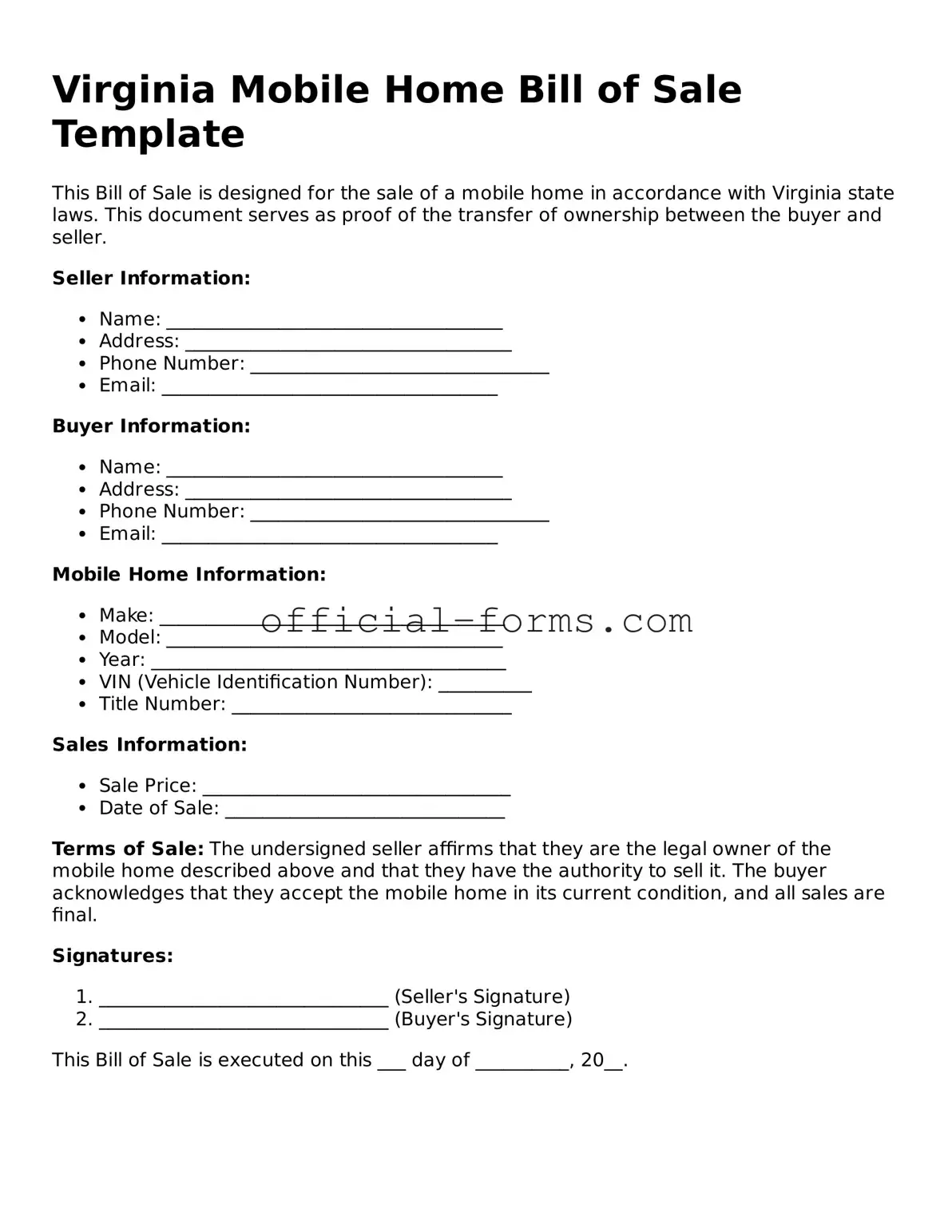Official Virginia Mobile Home Bill of Sale Document
The Virginia Mobile Home Bill of Sale is a legal document used to transfer ownership of a mobile home from one party to another. This form outlines essential details such as the buyer and seller's information, the mobile home's description, and the sale price. Properly completing this form ensures that the transaction is recorded accurately and protects the rights of both parties involved.
Open My Mobile Home Bill of Sale Now

Official Virginia Mobile Home Bill of Sale Document
Open My Mobile Home Bill of Sale Now
Don’t leave your form incomplete
Finish Mobile Home Bill of Sale online quickly from start to download.
Open My Mobile Home Bill of Sale Now
or
➤ PDF
